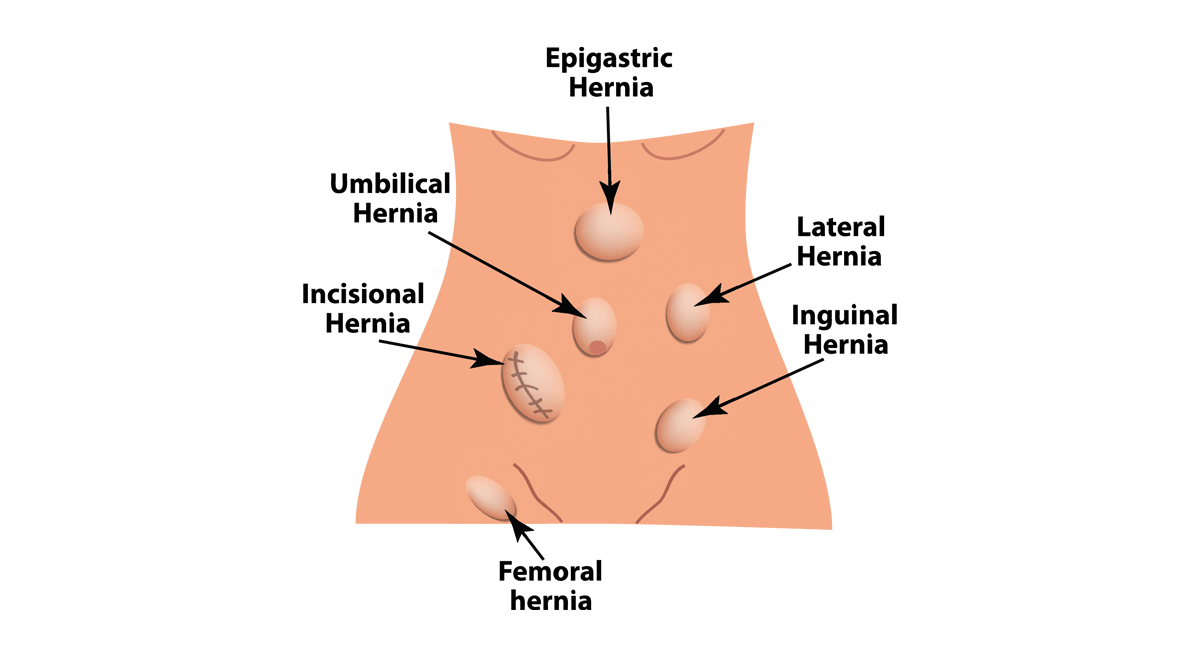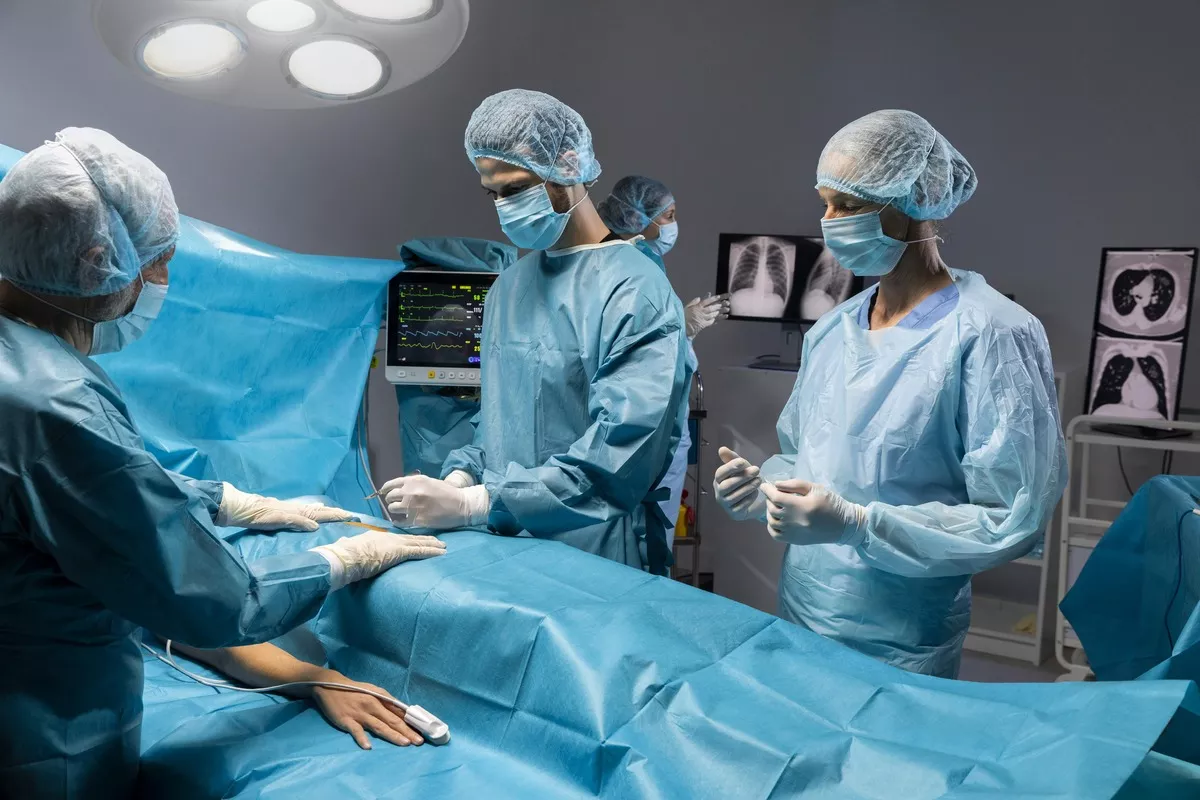A hernia is a medical condition that occurs when an organ or tissue protrudes through a weak spot in the surrounding muscle or connective tissue. This can happen in various parts of the body, including the abdomen, groin, and diaphragm. A hernia is a medical condition that occurs when an organ or tissue protrudes through a weak spot in the surrounding muscle or connective tissue. This can happen in various parts of the body, including the abdomen, groin, and diaphragm.

Types of Hernia
- Inguinal hernia
- Femoral hernia
- Umbilical hernia
- Incisional hernia
- Diaphragmatic hernia
- Epigastric hernia.
Hernias can occur in people of all ages, from infants to the elderly. They may be present at birth, or they may develop over time due to a combination of factors, such as weak muscles, straining during bowel movements, lifting heavy objects, or pregnancy.
Frequently asked questions on hernia
What is a hernia?
A hernia occurs when an organ or tissue protrudes through a weak spot in the surrounding muscle or connective tissue. It can occur in multiple locations in the abdomen depending on the type of hernia.
What are the symptoms of a hernia?
Symptoms of a hernia can include a visible bulge or swelling in the affected area, pain or discomfort, a feeling of heaviness or pressure, and difficulty moving or bending. Some patients may not cause symptoms at all for many years.
What causes a hernia?
A hernia can be caused by a variety of factors, including weak muscles, straining during bowel movements, lifting heavy objects, pregnancy, and previous surgery. It can be present from birth in some patients.
Are hernias dangerous?
Hernias can be dangerous if left untreated. Complications can occur when the herniated organ or tissue becomes trapped and loses its blood supply, leading to incarceration or strangulation.
How are hernias diagnosed?
Diagnosis of a hernia typically involves a physical examination, including a visual inspection and palpation of the affected area. In some cases, imaging tests such as ultrasound, or CT scans may be ordered to confirm the diagnosis.
How are hernias treated?
Treatment options for a hernia depend on the severity and location of the hernia, as well as the individual's overall health and medical history. In some cases, a hernia may not require treatment and can be monitored over time. However, surgery may be necessary to repair the hernia and prevent complications. Surgery options include Open mesh hernioplasty, Laparoscopic mesh hernioplasty, and Robotic-assisted mesh hernioplasty.
Can hernias recur after surgery?
Yes, hernias can recur after surgery. This can happen if the underlying weakness in the muscle or connective tissue is not adequately addressed during the initial surgery. Hernia can also recur if adequate precautions are not taken post-operatively.
How long does it take to recover from hernia surgery?
Recovery time can vary depending on the type of surgery and the individual's overall health and medical history. Post-surgery can start walking immediately once the anaesthesia wears off, and will be discharged on the same day or the next day. Can resume normal work early, however, it is best to avoid strenuous work for up to 6 weeks.
Can hernias be prevented?
Hernias cannot always be prevented, but there are some measures that can reduce the risk of developing a hernia, such as maintaining a healthy weight, avoiding heavy lifting, and treating conditions that can cause coughing or straining.
In conclusion, hernias are a common medical condition that can occur in people of all ages. While many hernias may not cause symptoms or require treatment, others may require surgery to repair the hernia and prevent complications. Early diagnosis and prompt treatment can help improve outcomes and prevent complications.











